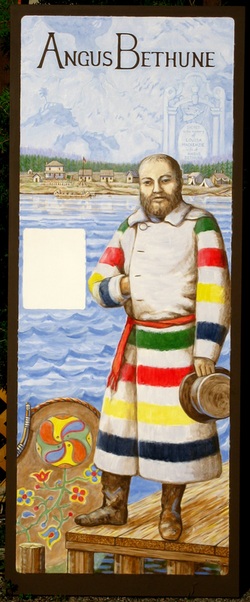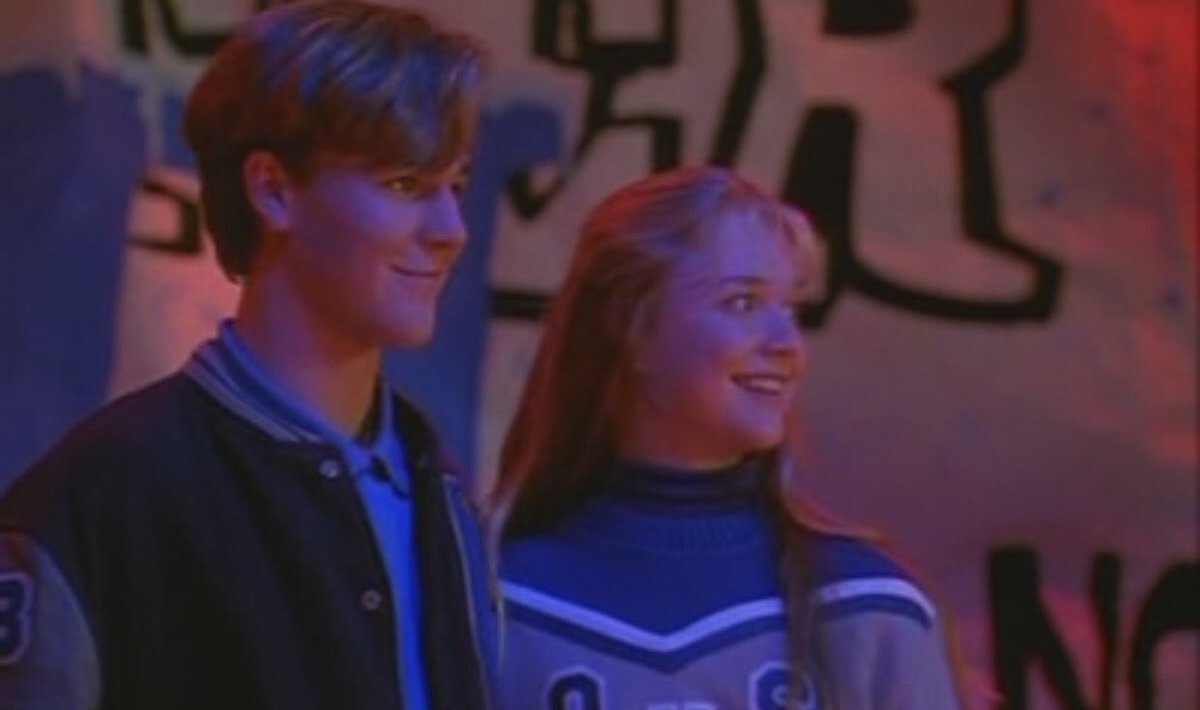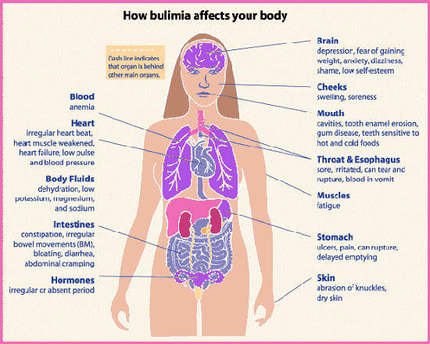
Angus may have associated social media accounts, which may include Facebook, Twitter, LinkedIn and Dating Networks. Records indicate people named Angus Bethune may have financial data available including: Liens, Bankruptcies, Assets, Judgements, UCC Filings and/or Evictions. Angus Bethune (politician): biography 10 September 1908 – 22 August 2004 Sir Walter Angus Bethune (10 September 1908 – 22 August 2004) was an Australian politician and member of the Tasmanian House of Assembly. He was Premier of Tasmania from 26 May 1969 to 3 May 1972. Early life Bethune was born in Sheffield.
It shouldn’t be a surprise that Angus gets the girl at the end. Rather, it’s simply the conclusion of a particular teen movie formula: popular kid(s) play joke on unpopular kid (or there’s a bet), joke turns out to benefit unpopular kid at first, joke is revealed, fallout and devastation, some real emotion is shown, unpopular kid gets rewarded. Here, Angus Bethune, mercilessly bullied for his weight, for not being “normal,” is elected Freshman Winter Ball King as a prank by popular, perfect Rick Sanford. This means Angus gets to dance with his lifelong crush, Melissa Lefevre (Rick’s girlfriend), and even though Angus is aware that it’s a big joke, he doesn’t know it will get worse or how.
At the start of the film, Angus waits for “that one moment that’s truly yours, for something to happen that makes you believe maybe once in a while the good guys can win.” And so we’re with him, too, waiting, expecting. Hoping the formula works in his favor, like it should.
*
I remember the night my dad brought home the screener for Angus. He’d always get screeners in the mail for his video store, VHS preview copies he was supposed to watch to see if he wanted to buy some to rent out. We pulled out the sofa bed to watch, some weekend night between its theater debut and home video release. If my timing’s right, I was eight, right on the verge of nine. Not at all ready for my first high school movie.
That’s probably why what clings most to my memory of that first viewing is not the complicated nature of being an unpopular freshman, but rather Green Day’s “J.A.R. (Jason Andrew Relva)” playing twice in the film and then in full at the end, the pop-punk so fast, so fun, so different from anything I’d heard. Even though I didn’t fully understand it, the movie—and the music, the slightly-post-grunge aesthetic—lay dormant within me, seeds ready to bloom if given the right conditions.
*
For a while, we wonder if Angus will even make it to the dance, if he’ll still have a shot at getting the girl. Everything conspires against him. As the movie goes on, the bullying ramps up. Rick and the other football players steal his clothes and fly his underwear up a flagpole. He can’t dance. The store doesn’t have a “normal” black tuxedo in his size. His mom doesn’t want him to go to the dance because she doesn’t want him to get hurt. Worst of all, his grandfather, his biggest supporter, dies suddenly (and on his own wedding day). And then just as Angus is about to head out the door the night of the dance, dressed in his tuxedo, the interviewer from the magnet school he applied to shows up on his doorstep. Angus has to decide between getting a chance at starting over at a new school where no one knows him, or facing his tormentors for a shot at his one perfect moment.

*

A few years later and I was right on the cusp of the appropriate age, seventh grade. I watched Angus frequently when it ran on TNT. I would watch it up in my room. I was always in my room then. I had the door closed. I was on the phone with my best friend for hours. Or I was putting on body glitter and wiping it off after getting self-conscious. Or I was in my bed with my Discman. Or I was by the stereo, trying to tape songs off the alternative rock station. Once, I called in to request “Basket Case.”
Now the movie made sense, both the music and the high school hierarchy. I was experiencing it daily in middle school, the cliques and categories. I wasn’t a cheerleader. I was an unpopular, quiet girl who liked alternative music and had a crush on an “alternative” guy who was in love with my best friend, someone I considered “normal.” I would’ve been a good stock character. Obviously, I was pretty sold with Angus’s one moment theory.

At school dances, I danced with my crush because we were friends, and friends could totally just dance together. But I could live off the electricity of touching his shoulders for weeks. I fell asleep looking at my popcorn ceiling and imagining the moment he’d finally declare he’d loved me all along. When I watch Angus now, I cringe and worry about the framed picture of Melissa he keeps on his desk. But when I remember the intensity of my own seventh-grade crush, I reconsider.
*
At the Winter Ball, we brace for the prank, wait for Angus to be crushed. We know it’ll hurt, but this is what has to happen before he can win Melissa. This is the “fallout and devastation” part of the formula: it’s revealed that Angus’s best friend and sidekick Troy has given Rick and his goons a tape of Angus practicing his dance using a blow-up doll. In a very Carrie move, Rick gets it played in front of the whole dance, leaving the crowd to laugh at nervous, plum-tuxedoed Angus, ruining what he hopes will be his one big moment. Melissa runs off and Angus follows her.
“Do you ever get tired of who you are?” she asks him, crying.
He says, “Do you know who you’re talking to?”
And then she tells him something she hasn’t told anyone before. She tells him she has bulimia. He says he understands, offers a joke. She smiles. They have to go back inside. Angus warns her he can’t dance. “We’ll survive,” she says.
*
I thought I was prepared for high school, that I had learned the ropes from watching a zillion teen movies, or at least the same ones over and over. I thought I could deftly maneuver out of any plot line I didn’t like. But as soon as I entered ninth grade, I knew something was wrong. I’d quietly managed my OCD for years, but now it ballooned and I couldn’t get out of bed. I felt dead inside but wanted to be dead-er. I spent a week in a psychiatric hospital, my grades started dipping, and I became reckless. I became violent, experienced violence. I became heavily medicated. Home was bad. My parents were living separate lives. It seemed like no one really cared what was going to happen.
*
The big dance scene is gorgeously shot, the repetition of the turns dizzying, the deep blues highlighted by bits of silver. Mazzy Star’s “Fade Into You” plays over the DJ’s speakers. It’s the perfect song for the scene; it’s soft, wandering but controlled, Hope Sandoval’s whispery vocal paralleling Melissa’s gentle encouragement. Melissa guides Angus through the dance as the guitar dips in, echoey, distant. When the song ends, the crowd around them is silent. Applause breaks out.
Rick rushes over to confront Melissa for going through with it, for resting her head on Angus’s chest, for being kind to him. Angus defends her. Rick punches him and he crashes into a refreshments table. Somewhere along the line the music’s been cut off. “Welcome to high school, Angus,” he says, smirking.
And then we get Angus’s speech. “I’m still here, asshole!” he says. “I'll always be here! You push me down and I'll get right back up again, and again, and again…” He stands up for anyone who’s ever been made to feel different. He questions what normal could possibly mean. He wants to be himself, and he’s finally free to do that. He’s following his grandfather’s advice—screw ’em—which Melissa echoes back at Angus when inviting him to dance to a fast song with her. The night’s coalesced around a new Angus, someone he wasn’t at the start of the film.
*
Somehow, I graduated high school. As time went on, as medications were tinkered with and I started following therapeutic guidelines, I was more able to control things. Still, I battle mental illness every day. Still, the chaos of high school has followed me, dragged me down, this ball and chain of memory—not just mine, but my family’s. Remember how awful you were? That sort of thing. I got stuck there in adolescence, and I still can’t seem to get out. I think about the past every day, detailed flashbacks of that time. I haunt myself.
And it’s not only my own high school experience I’m stuck in. It’s what I still turn to in movies (obviously), look for in literature, try to write myself. Every protagonist a teenager. Every emotion times a thousand. I know there’s psychology behind being stunted, this arrested development or whatever it is, but knowing that won’t necessarily change my behavior.
It’s like I’m trying to change the past just by conjuring it, obsessing, re-litigating. But I rarely focus on the end part, the part where I don’t kill myself, where I graduate, where I go to college, where I become semi-functional. The part after high school, where I’ve survived.
*
Angus finally came out on DVD in 2009, so before that I just used a VHS we got off eBay. I don’t know what happened to the copy from my dad’s store, the one he eventually bought to rent out. Everything inside that store either got sold or packed away in the basement of the condo he moved into after my parents got divorced.
When I watch Angus now, I feel nostalgic. Who wouldn’t? The flannel, the haircuts, the iconic soundtrack. But I also feel nostalgic for the other times I watched the movie. For the pullout sofa in our old TV room, the high-speed whir from the Kinyo video rewinder that sat next to our VCR. For my old room, the purple lava lamp, the desperate hope of a middle-school crush. For what my life was like back then, my total ignorance and innocence, the anticipation of what my life could be.
The older I get, the more I focus on the very end of the film, something I didn’t understand until I was an adult. When I was younger I always assumed we were supposed to really lean into that kiss, that it was doing most of the wrap-up work. That we’re supposed to speed into the future and imagine Melissa and Angus as high school sweethearts who marry and die peacefully of old age while embracing each other. Or, in a more nuanced version, maybe I assumed things are mostly the same but slightly improved. Maybe Rick stops bullying Angus. Maybe Melissa and Rick definitely break up. Maybe, as Angus posits via voiceover, she actually likes him.
I guess I should’ve been paying more attention to that speech his grandfather gives about Superman not being brave, because now I can see Angus’s one moment is not his dance with Melissa, but rather the realization of his own self-worth. His declaration in front of everyone that tenacity, bravery, and simply getting up and continuing to live are enough.
Angus is walking Melissa home. She’s wearing his jacket. He’s won; Rick’s defeated, injured, and suspended. Angus and Melissa get to her door. She kisses him on the cheek, smiles. The movie ends with a voiceover where Angus looks back on the dance: “I had had my moment. And then I hear my grandfather’s voice say to me, now go have another one. Maybe I will. Who knows. Maybe Melissa Lefevre actually likes me. All I know is I’m still here.”
Angus Bethune Questions
So, yes, Angus gets the girl in the end, but he moves beyond that; he learns he has inherent worth just like everybody does, that he can survive anything. It’s a pretty bleak thing, to just survive. But sometimes that’s all we can do.